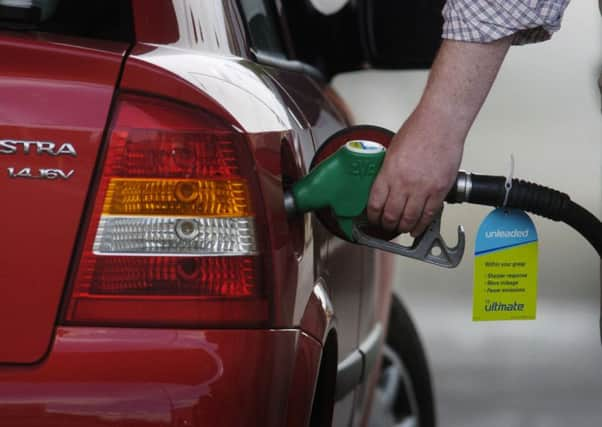Scots reject ‘greener’ forms of transport


The statistics for last year from the Scottish Government agency show people are still largely rejecting greener and healthier ways of getting about - while more are travelling alone on their own set of four wheels.
Car drivers and passengers accounted for 64 per cent of journeys - 3 percentage points more than in 2012 and the highest level for three years.
Advertisement
Hide AdAdvertisement
Hide AdWalking was down by a similar amount, to 23 per cent of trips, while 6 per cent of those who worked to walk in 2012 had switched to driving, some because they had changed job or moved house.
Buses increased their share marginally, by less than half a point to 8.5 per cent, but cycling, trains and taxis were virtually unchanged at 1-2 per cent each.
The tightening stranglehold of the car over Scottish transport comes as more people buy cars and share journeys less.
The number of vehicles on the road increased by 2 per cent to 2.76 million, and the 241,000 new ones registered were the most for five years.
The Transport and Travel in Scotland 2013 report also showed lone drivers accounted for 65 per cent of car journeys, which has increased by well over half since 2008.
Easing fuel prices will also have encouraged more mileage, with the average household monthly spend down from £134.50 to £129.
Among people questioned by the Scottish Government survey, nearly half of those who drove to work said they could use public transport, but many said it took too long or was not on a direct route.
A motoring group said the figures did not bode well for further car growth as the economy grew.
Advertisement
Hide AdAdvertisement
Hide AdNeil Greig, the Scotland-based policy and research director of the Institute of Advanced Motorists, said: “Advertising aimed at getting drivers out of their cars for short journeys or to car share seems to be having little impact on behaviour, with car occupancy levels actually falling.
“The real acid test for government policy will be what happens in this and following years as the economy picks up. Early indications are that traffic is growing again after several year of decline.”
Colin Howden, director of sustainable transport campaigners Transform Scotland, said: “The figures clearly demonstrate the government’s current transport strategy is failing to get people to switch to more sustainable modes such as public transport, walking and cycling.
“What is especially worrying is the increase in single occupant car use. We need to see new measures put in place to incentivise more efficient use of the road network.”
Dr Sam Gardner, head of policy at environmental campaigners WWF Scotland, said: “Five years on from the passing of Scotland’s climate change legislation and it’s difficult to spot any discernible trend toward more sustainable forms of transport.
“Despite the fact the majority of journeys remain less than 3km (2 miles), the car continues to dominate our transport choices.
“Supporting active travel [walking and cycling] can help tackle the air quality problems of Scottish cities and provide a healthy, low-carbon way of getting about town.”
A Transport Scotland spokeswoman said: “The Scottish Government aims to get more people making active travel choices for their everyday journeys wherever possible, to improve health and the environment.
Advertisement
Hide AdAdvertisement
Hide Ad“However, behaviour change does not happen overnight and we are continuing to work in partnership with local authorities, [path developers] Sustrans, Cycling Scotland and Paths for All to get the message across that for shorter journeys cycling and walking can be a realistic choice.
“We have an impressive track record in funding bus travel, providing some £250m annually to support a range of schemes.
“The Scottish Government is also committed to ensuring rail fares are affordable across Scotland for all” - by capping increases.